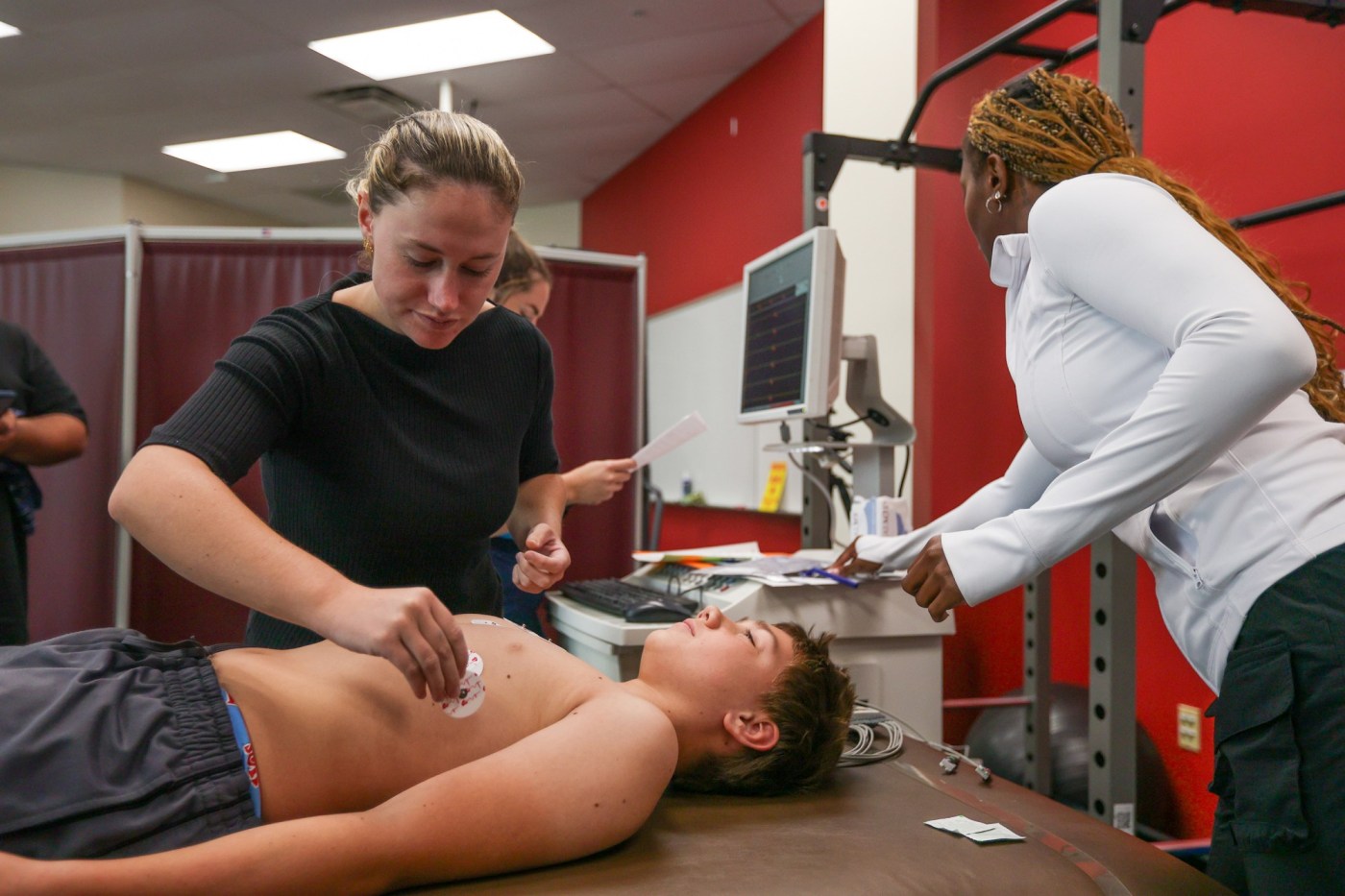Health
Free Heart Screening Clinic at King’s College Draws Large Turnout

A free heart screening clinic held on October 4, 2025, at King’s College in Wilkes-Barre attracted around 120 participants, including a group of student athletes from Pittston Area High School. The clinic, organized by King’s College in partnership with the Peyton Walker Foundation and Geisinger Health System, aimed to identify potential heart conditions in youth aged 10 to 22.
Statistics indicate that approximately 2% of youth undergoing heart screenings are diagnosed with an abnormality, while 1% may be found with a life-threatening heart condition. At this event, Julie Walker, mother of the late Peyton Walker, reported that the clinic usually sees a higher detection rate, estimating between 3% to 5% of participants identified with issues.
Walker founded the Peyton Walker Foundation in 2014 to promote awareness and improve survival rates associated with sudden cardiac arrest through education and screenings. Over the past ten years, the foundation has conducted screenings that identified numerous children requiring follow-up care, including surgeries and implantable defibrillators.
Participants in the clinic received an electrocardiogram (ECG) at no cost, and those recommended by an onsite cardiologist also underwent echocardiograms. In addition to the screenings, attendees engaged in educational sessions covering topics such as cardiopulmonary resuscitation (CPR) and the use of automated external defibrillators (AEDs).
Sister Elizabeth Kovacs, a faculty member in the nursing program at King’s College, supervised nursing students who provided CPR training. The training included a two-minute video from the American Heart Association, practical demonstrations, and coaching on effective CPR techniques, including checking for responsiveness and proper compression rates.
The event aimed not only to screen for heart conditions but also to educate participants on emergency response protocols. Kovacs emphasized the importance of clear communication when delegating tasks during emergencies, such as calling 911 or retrieving an AED, which are required to be available in public spaces.
One participant, Anderson Lahr, a 12-year-old from Moscow, practiced CPR on a training manikin and found the operation of an AED particularly interesting. He attended the clinic with his brother, Alexander, and their parents, Chris and Stacey Lahr. Stacey noted the increasing instances of undiagnosed heart conditions in young athletes, prompting their decision to participate.
To date, the Peyton Walker Foundation has screened over 6,000 young people, donated more than 1,500 AEDs, and provided training in CPR and AED usage to tens of thousands. Walker expressed her commitment to educating families about the signs and symptoms of sudden cardiac arrest, highlighting how this knowledge can ultimately save lives.
“My motivation to get up every day is to save another family from the heartache that we live with,” Walker stated. She underlined the foundation’s mission to continue educating parents and youth about heart health and emergency preparedness in hopes of preventing tragic outcomes.
-

 Lifestyle5 months ago
Lifestyle5 months agoLibraries Challenge Rising E-Book Costs Amid Growing Demand
-

 Sports5 months ago
Sports5 months agoTyreek Hill Responds to Tua Tagovailoa’s Comments on Team Dynamics
-

 Sports5 months ago
Sports5 months agoLiverpool Secures Agreement to Sign Young Striker Will Wright
-

 Lifestyle5 months ago
Lifestyle5 months agoSave Your Split Tomatoes: Expert Tips for Gardeners
-

 Lifestyle5 months ago
Lifestyle5 months agoPrincess Beatrice’s Daughter Athena Joins Siblings at London Parade
-

 Science4 months ago
Science4 months agoSan Francisco Hosts Unique Contest to Identify “Performative Males”
-

 World5 months ago
World5 months agoWinter Storms Lash New South Wales with Snow, Flood Risks
-

 Science5 months ago
Science5 months agoTrump Administration Moves to Repeal Key Climate Regulation
-

 Business5 months ago
Business5 months agoSoFi Technologies Shares Slip 2% Following Insider Stock Sale
-

 Science5 months ago
Science5 months agoNew Tool Reveals Link Between Horse Coat Condition and Parasites
-

 Sports5 months ago
Sports5 months agoElon Musk Sculpture Travels From Utah to Yosemite National Park
-

 Science5 months ago
Science5 months agoNew Study Confirms Humans Transported Stonehenge Bluestones









